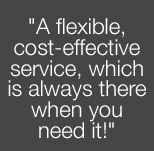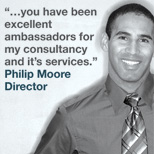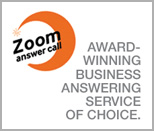| |
 |
|
 |
Learn the callers business language
Research into the sector and use similar phrases to build trust |
| |
|
 |
Match the customers approach
If they are in a hurry tell them you appreciate this. If you have to get other help, let them know a time estimate |
| |
 |
Answer the call after 2 rings and before 6
Believe it or not most people do not expect to be answered on the first ring and are often not ready |
| |
|
 |
Don’t hang up first, let the caller
IF you hang up you might miss. "Oh by the way" i.e. an opportunity (30% of people do this!) |
| |
|
 |
Sound lively, interested and efficient
This is the impression your client has of you, your colleagues and your company |
| |
|
 |
Have open questions ready in case of a pause
A pause of longer then 10 seconds is unacceptable to a caller as it seems longer. Have some questions prepared or a list of non contentious things to talk about |
| |
|
 |
Never assume callers are like you
Comments on race, religion, politics or even sport might cause an issue if the caller has different views |
| |
|
 |
Don’t worry about a good vocabulary
If you use difficult words, it may well inhibit others from grasping what you are saying. Ordinary conversation actually uses a very restricted vocabulary |
| |
|
 |
Don’t say "I don’t know"
IF you are unsure or don’t know an answer, tell the caller “I’ll find out and get back to you” |
| |
|
 |
Be an active listener to build trust
Listening is critical on the phone. Acknowledge the callers comments with, “ok”, “I understand”, “yes” to show you are interested and listening |
| |
|
|
|
| |
|
|
|
|
| |


















